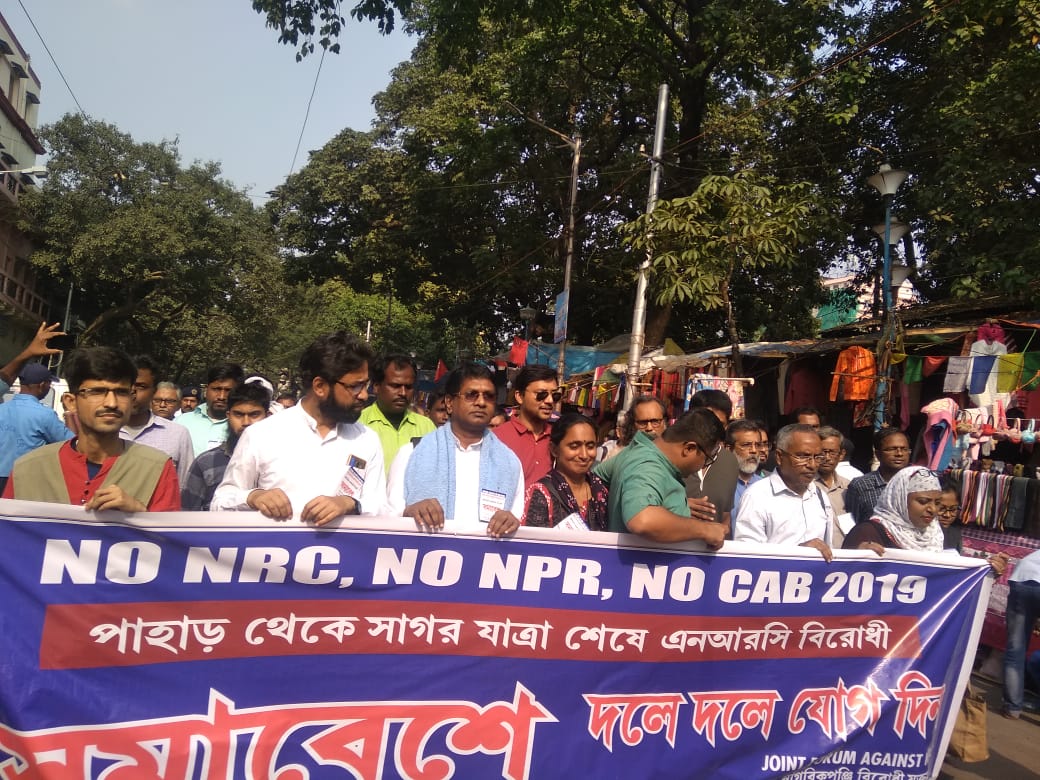WB government stops groundwork for NPR, activists claim ‘victory’

By Shabina Akhtar, TwoCircles.net
West Bengal became the first Indian state to stall ground level preparation being done for the implementation of the National Population Register (NPR). However, Bengal-based activists who have been working hard to build an anti-NRC movement in Bengal have claimed that the state government’s move is an outcome of their collective pressure on the state government to come clear on their stand on NPR.
Speaking to TwoCircles.net, Altaf Ahmed, general secretary of APDR, said, “We had exposed the state government when they were secretly having government officials trained at Salt Lake. We had even demonstrated against the state government back then. I guess, with the Chief Minister spearheading the anti-NRC movement in Bengal, has been forced to issue a stay order.”
Adding to that co-convenor of Joint Forum Against NRC, Prasenjit Bose said, “It’s a mere departmental stay order and not a public notification. Also, the move comes after the Forum filed a writ petition challenging the Union Home Ministry’s notification on NPR. The state government is one of the respondents in this case and is bound to give a written response to clear its stand on NPR.”
Like many activists, Bose also feels that the stay order issued has no legal sanctity. He said, “NPR has been notified by the Union Home Ministry through Gazette Notification on July 31, 2019, under the Citizenship Rules, 2003. The WB government’s communication does not mention any legal provision or rationale.”
However, there are a few activists, who feel that the CM’s intention shouldn’t be doubted. “We had been raising concern over the CM’s silence on NPR issue and the training for NPR initiated by the state government. The stay order is a welcome move,” said Tanmay Ghosh, president of Bangla Sanskriti Mancha, an NGO which has been educating the masses about the ill effects of NRC, NPR and CAA. He further added, “We must not doubt the intent of the chief minister.” He then added, “I welcome the move of the state government to stall NPR activities, and am hopeful that other states will take a cue from Bengal and develop a similar anti- NRC, NPR and CAA movement.”
On being told, that citizenship is decided by the central government and the state would be helpless to stall the implementation, he pointed out, “Citizenship is governed by the centre, but to have NRC and NOR implemented, the centre will need cooperation from the state. Where will it get the human resource to have it implemented? Passport Seva Kendra officials alone will not be able to execute this tall an order. Also, what about the funds? Assam NRC alone cost around INR 1600 crores, so imagine how much a pan-India NRC would cost the present government.
